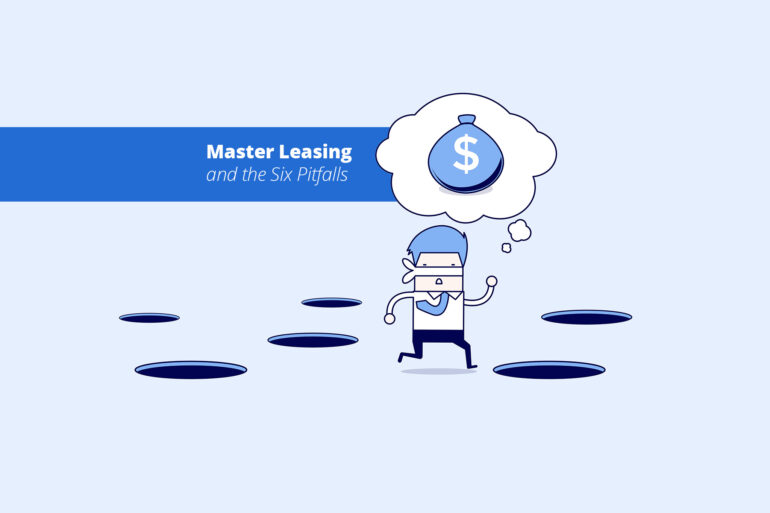Master Leasing and the Six Pitfalls
In the twenty-first century, ways to break into the real estate investment world seem to be endless. To seasoned real estate attorneys, none of these methods—Gator, Morby, etc.—are new. Instead, they are old methods of putting real estate deals together with fun and new memorable names.
One of these methods is called “master leasing,” which is subleasing with additional burdens and responsibilities on the tenant and a potentially greater laid-back approach on the property owner.
Master leasing can be a viable investment strategy for real estate investors who are looking to generate passive income from their rental properties without being as hands-on as other property owners.
With the master leasing real estate investment strategy, an investor leases property from the owner and then subleases it to tenants. This strategy allows the investor to generate cash flow from the property without actually owning any real estate. It’s been commonly used in the commercial real estate world, but it has recently gained momentum in residential real estate. In addition to the original lease between the landlord and the tenant, another legal agreement, referred to as the master lease, outlines the terms of the lease between the investor-tenant and the property owner, as well as the terms of the sublease between the investor-tenant and the sub-tenants.
The master lease agreement has certain characteristics that differ from traditional residential leases. The lease period for the investor-tenant is often for multiple years, rather than a year or less. The master lease also passes on many of the maintenance responsibilities to the investor-tenant, as well as property management, tenant selection, and rent collection. The investor-tenant pays a fixed rent under the master lease, and then attempts to gain positive cash flow based on the rent collection from sub-tenants and minimizing expenses through efficient property management.
While master leasing is a viable real estate investment opportunity, it is not for everyone.
Master leasing can be a viable investment strategy for real estate investors who are looking to generate passive income from their rental properties without being as hands-on as other property owners. It can also appeal to property owners who do not have the cash flow to make necessary repairs and renovations to get top dollar for their rentals. Finally, it can be a way of delegating property management activities without hiring a third-party property management company. It is appealing to investor-tenants because it requires less upfront capital than if they had to purchase a property but takes advantage of available capital for repairs and renovations. In this manner, the right property owner/investor-tenant partnership can succeed under a master lease agreement.
While master leasing is a viable real estate investment opportunity, it is not for everyone. Investors on both sides should carefully consider the potential risks and pitfalls before pursuing this investment strategy, especially considering the obligations imposed by Chapter 83 of the Florida statutes.
Let’s discuss six potential pitfalls of master leasing for real estate investors:
When a master lease is executed, the owner has to delegate some of that control to the investor-tenant.
1. Limits on control over the property. In a traditional lease setting, the property owner has significant control over the property. If improvements are needed, the owner chooses the scope of the improvement, the budget, the contractors, and the timeline, etc. When a master lease is executed, the owner has to delegate some of that control to the investor-tenant. To protect his property rights, an owner will need to be very clear about the approval of improvements and changes to the property, or he/she may end up unwittingly delegating the choice of contractor, type of improvement, look of the improvement, and budget of the improvement, etc.
2. Tenant selection. Owners in traditional leases have ample choice over tenant selection. With a master lease, much of the authority over who becomes the subtenant has been delegated to the investor-tenant. A high level of trust is required between the owner and the investor-tenant.
3. Increased liability risks. There are always greater property-right risks when more people are authorized access to a parcel of land. As such, the owner would be wise to increase hazard insurance coverage on the property and increase personal injury coverage. The investor-tenant also has a much greater liability risk with a master lease. As they are perceived to be the landlord to the subtenants, if repairs go wrong, if there is a slip and fall, if someone is injured or if property is damaged, the investor-tenant will certainly become a party to that lawsuit. To pass this risk onto third parties, the investor-tenant would also benefit from general liability coverage and from requiring renter’s insurance for the subtenants.
High-ticket repairs and replacements will need to be properly delegated under the master lease, or they will remain the responsibility of the owner.
4. Capital improvements and high-ticket repairs. All properties will need significant investments from time to time. In Florida, most insurance companies will require a new roof to be installed to secure coverage if the estimated life of the roof is less than five years. If the owner of the property has retained this responsibility under the master lease, he will have to work with the investor-tenant and subtenants to coordinate this major project. Older properties may also need to be re-wired, plumbing may need to be re-done, and HVAC units will need to be replaced. These high-ticket repairs and replacements will need to be properly delegated under the master lease, or they will remain the responsibility of the owner. If the investor-tenant has agreed to undertake all repairs to the property, they will need to build that into their cash flow with the understanding that they will not be reimbursed for those expenses since fixtures and improvements belong to the owner of the property.
5. Limited exit options. A master lease is only a limited possessory interest in the property. Selling a master lease may be outright prohibited under the contract. Even when an assignment is permitted, the owner will want significant requirements met before allowing a new party to have that much control over their property. The owner will face a similar challenge selling a property that is subject to a multi-year master lease; therefore, for both sides, exiting a master lease agreement through third parties may be more challenging.
6. Limited tax benefits. It is the right of the property owner to take depreciation deductions and increase their basis through capital improvements. Furthermore, the property owner is the one who will benefit from property appreciation. The investor-tenant may be limited to deductions for repairs during the master lease term.
Overall, master leasing can be a viable investment strategy for real estate investors, but it is important to carefully consider the potential pitfalls before pursuing this option. Investors on both sides should assess their risk tolerance, financial goals, legal liability concerns, and available resources before deciding whether master leasing is the right investment strategy for them.








